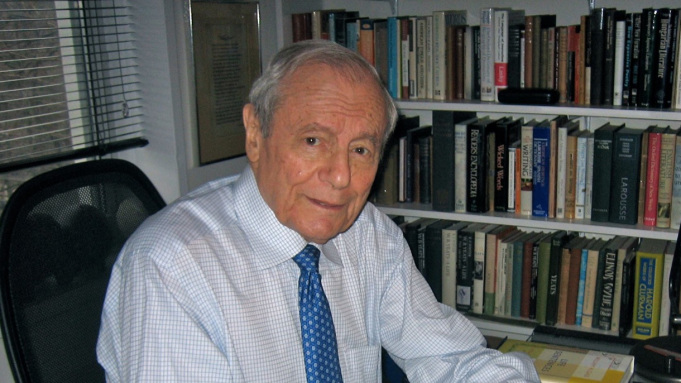John Simon, the infamously vitriolic theatre critic who held the top post at New York magazine more or less uninterrupted from 1968 to 2005, died over the weekend. He was 94. This is one of two memorial tributes to his legacy; the other is here.
I’ve always believed theatre critics were some kind of cross between unicorns and transformers, strange as that may seem. When they are loving you, even unicorns are not rarer or more wonderful. And when they hate you, no Marvel concoction of death can be more chilling.
So I have always preferred to remain anonymous, unknown, utterly hidden when it comes to actually confronting any one of them. I have prided myself on meeting as few as humanly possible, believing if they don’t know what I look like… if I don’t know what they look like… maybe I’ll get away with… whatever theatre piece I might be perpetrating on the general public at that moment.
So it was with horror and dread I saw, standing in the airport line before me some years ago in Toronto, the dreaded John Simon, about to get on the same small plane I was, headed down to New York. It must have been somewhere in the mists of the ’80s, I believe, and I was still working at the Old Globe, but there was nothing for it. He had looked at me with full recognition, and I was a deer caught in the proverbial headlights. And worse… we were seated together!
He had burst on the critical field a decade or so earlier, armed with vast erudition, a slashing pen, and enough barbs to fell a generation of theatre artists with the kind of epithets destined for etching upon all our respective tombstones. We feared him. We loathed him. We quoted him endlessly. He was ruthless. He was hilarious. And he was usually right!
“What are you working on, Mr. O’Brien?” he intoned in that curious, middle-European accent. When I confessed to a play called Catsplay, by the Hungarian playwright Istvan Orkeny, which I was mounting for Sada Thompson as part of my season, he lit up, all formality vanished, and he instantly became a font of helpful information about a writer I’d never encountered before, and about whom he knew tons.
And just that quickly, I had to acknowledge, we were “friends.” Truth to tell, he had never targeted me in print, and in the case of the Broadway production of Richard Nelson’s Two Shakespearean Actors, had given me one of the most remarkable notices of my life, so why was I quaking? Because I was metaphorically looking over my shoulder to see if I was about to be ambushed. I never was.
Years later, I think I finally understand my misunderstood temerity. Because John Simon had then and had always exhibited a standard against which he measured all drama, all literature, all aspiration to excellence. and when it fell below that standard, he couldn’t bear, in his opinion, the sad reality left on the stage or the page. Yes, he could be vicious. Yes, he could even be unfair. But I came to understand the pain that anything less than perfection cost him—in his own work as well as that of others. He wrote with passion, a passion that, over the intervening years, became increasingly burnished with his remarkable insights, his massive knowledge not only of works indigenous to Broadway, but across the globe itself, and extending back in history in all directions.
He tended to be disgusted with us that we were not more aware, more embracing of the world’s entire dramatic literature, as opposed to that of just Great Britain and the United States. Once he knew I was vulnerable to the wit and individual voice of an Orkeny, he insisted I take on the entire Golden Age of Spanish drama as well, and never missed an opportunity to castigate me for my all-too-provincial tastes. “You have a damned responsibility,” he’d rasp at me. “Sometimes I don’t understand you at all!”
But he did. And once my pathetic defenses had been exposed for the ineffectual papier-maché bulwark they represented, he called me frequently, soliciting my opinions on his latest criticism, eager to engage, always happy to argue, defend, and tilt. And as the critical landscape begin shrinking, with papers folding, columns disappearing, and the astute science of “criticism” fading to something more like “reviewing,” and as he slipped further and further down the ladder of power and influence, he raged on, wherever he could find quarter, consistent, objective, and furious to the last.
Critics—in the guise of Shaw, Beerbohm, Atkinson, Clurman, Kerr, and Rich—are not finally all that expendable. They keep us honest with their outrage, their lack of “support,” their infuriating standards! He’d hate to think I see him now as a singular, solitary, furious, infuriating unicorn. Nor do I blame him. There is no antecedent. No copy either.
The one and only!
Tony-winning director Jack O’Brien was artistic director of the Old Globe Theatre from 1981 to 2007.


